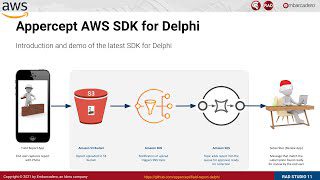Mobile app lifecycle events handling in Delphi XE5
September 30, 2013
Author: Pawe Gowacki
The lifecycle of a mobile app is more complex and different from a desktop app. On a mobile device an application runs either in the foreground or in the background. When a phone calls arrive or when user opens another app, our app is going to background. If you are a programmer, you might be interested in responding to changes in the application state, for example saving…


